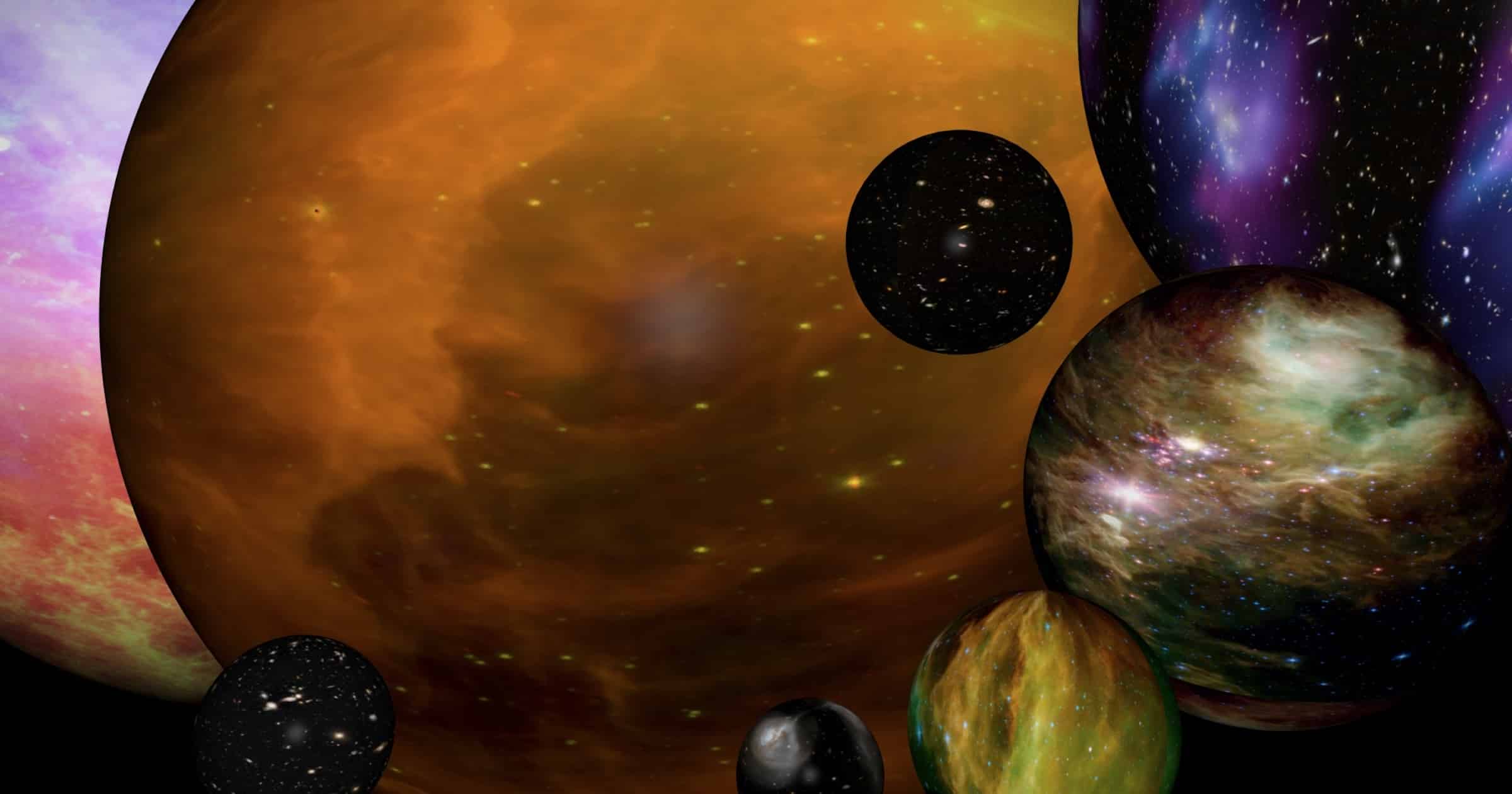 Intelligent Design
Intelligent Design
 Physics, Earth & Space
Physics, Earth & Space
Is the Multiverse Scientific Fact or Mere Fancy?

Recently at Closer to Truth, host Robert Lawrence Kuhn asked Professor of Christian Philosophy Nancey Murphy if, in her view, the universe is fine-tuned for consciousness:
That the universe is fine-tuned for life, with multiple physical laws required to be within small ranges, is generally accepted. But can we then make the additional argument that the universe is somehow required to contain consciousness? Such a conclusion may not follow. But the key question is this: Is consciousness wholly contingent or somehow special?
In the somewhat tense conversation that followed, it emerged that Murphy, a professor at Fuller Theological Seminary, isn’t even sure that the universe is fine-tuned.
Murphy: [2:01] Because, if you think in terms of — to put it simply — inference to the best explanation as being our most common form of reasoning, then it seems to cry out for explanation: Why, if it’s possible to have this vastly, vastly, vastly huge number of universes, should the one that exists happen to be the one that allows for life. It just seems to cry out for explanation.
And, of course, [2:30] for a theist, the simple explanation is, ah, God did it. And I’ve never espoused the idea that you could just simply start from the fine-tuning and use that all by itself as an argument for the existence of God. But I have argued that if you’ve already got an understanding of God as Creator, you could take that as a little bit of additional evidence to support your theistic claims.
Once the multiple universes thesis [2:57] came along early on, you could say, well they’re just making that up as an alternative hypothesis so they don’t have to think about God. But apparently, the science has progressed so that those theories have to be taken seriously in many different ways.
Kuhn: [3:15] Many different ways of generating multiple universes, yes. So now what do you think?
Murphy: [3:24] Well, I was sorry that the article that I put so much work into is now passé. But actually, as I’ve thought about these scenarios, it seems much more consistent with my conception of God to think that, if it’s possible to create more than one Universe, then it’s likely that God would have done that. Augustine in the fourth to fifth centuries had a term called the Principle of Plenitude which he used for different purposes. But the idea was that if God is truly good, then God would create as many different kinds of reality as God could. And this would seem to be a very fine contemporary illustration of that principle.
But Is the Multiverse Really a Scientific Fact?
But wait. The fine-tuning of our universe is a fact. The fine structure constant, 1/137, is not a matter of faith. But is there any evidence whatever for the existence of universes other than our own — let alone an infinite multiverse? Why are we to take such theories seriously, as Murphy and Kuhn seem to do?
We asked around about this and experimental physicist Rob Sheldon replied,
To answer your question, “No, there is no evidence for multiverses.” By that I mean, experimental observation that strongly necessitates a multiverse. I would even accept some prediction of multiverse theory that has limited observational support.
He noted that cosmologist Roger Penrose has been working on an idea that quantum fluctuations could turn into expanding universes with vastly different physical constants. But he cautions that “All of that, mind you, is pure speculation verging on religious fervor. And that is the extent of the ‘evidence’ for multiverses.”
In any event, Penrose’s speculations, if they pan out, do not lead to universes fine-tuned for life:
Mind you, this type of multiverse isn’t remotely like the stuff of Spiderman movies. These differing physical constants mean giant black holes or empty universes that immediately contract, or where stars explode as soon as they form. None of which is particularly conducive to life. And why they should have different physical constants is never stated, other than the need to explain the fine-tuning in our physical constants. It fails at prediction because no one else has verified his data analysis. But should it be verified, there are numerous other theories to explain it which do not invoke multiverses.
He suggested that the the popularity of the multiverse idea stems from the fashion in cosmology for “vaguely atheistic” theories.
Of course — in theory — God could create any number of fine-tuned universes. But, as Sheldon points out, we simply have no concrete evidence for any other universe at all. For evidence, we must always look to our own universe, which is clearly fine-tuned.
But What if There Were Infinite Universes?
In theory (not evidence), if we choose to assume infinite universes, anything is possible. But Robert J. Marks offered a useful reflection at Mind Matters News on the notion of a multiverse of infinite parallel universes:
The great mathematician David Hilbert claimed that “the infinite is nowhere to be found in reality.” As I have written previously on Mind Matters News, accepting infinity can lead to inane, ludicrous, and nonsensical conclusions.
He offers several such conclusons, including:
Infinite time cannot exist. If it did, an autobiographer who takes a month to write about each day of his life could finish his book. This ridiculous conclusion is a compelling argument that the age of the universe must be finite.
That’s why he calls such ideas “thought candy.” Fun, but not to be confused with taking evidence seriously.
Cross-posted at Mind Matters News.
